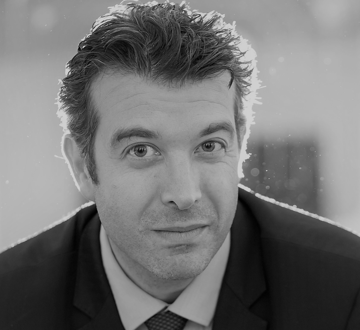Tax time seems to creep up every year and if you’re not prepared it can add a time consuming process to your already busy days. For medical practices and other businesses alike, the earlier you prepare, the better. Whether you’re in the planning stages of opening your own medical practice or already running an established practice, now is the time to review and simplify your tax time processes.
We explore 5 tips to simplify tax time for medical practice owners from day one.
1. Business and tax structures for medical practitioners
One of the most important decisions a medical practice owner will ever make is how to structure their business. This not only impacts the day-to-day operation of their clinic, but also their tax planning. There are various tax structures for medical practitioners, each with their own risks and implications at tax time.
Sole trader
When it comes to tax time, this tends to be the simplest business structure for medical practice owners, “with minimal record-keeping requirements for legal and tax purposes,” according to Ganrid Consultants. “A sole trader pays tax as part of their personal income tax return at their marginal income tax rate – as the business earnings increase, so does the owner’s tax rate.”
While the number of industry enterprises has grown at a fast pace, an IBIS World report on specialist medical services in Australia, says an “anticipated decline in the number of employees per business over the five years through 2017-18 suggests that more sole proprietary practices are being established compared with multi-specialist clinics”.
Company
“An incorporated medical company receives patient fees and pays business related expenses, with the remaining profit being paid to the doctor as a wage plus 9.5% superannuation guarantee,” says Maree Mcphail, partner at the ESV Group Accounting and Business Advisors.
Practitioners who set up a company and channel their fees through it are, for tax purposes, considered employees of the company. This means they must lodge individual tax returns each year, and a company return also needs to be lodged.
The advantages can include being able to claim a deduction for any wages or salaries paid to anyone employed by the company. The tax rate for small businesses is also 27.5% (on aggregate turnover of less than $10 million), compared to the highest marginal tax rate for an individual, which is 45% plus Medicare.
Partnerships
Partnerships are another common form of legal structure for medical practices and involve sharing the income, losses and control of the business. As with other legal structures, there are pros and cons to setting up this way.
From a tax perspective, one advantage is that a partnership doesn’t pay taxes on the income it earns. Instead, each partner pays tax at the individual rate on their share of the net partnership income. “By splitting income across personal tax rates, you get the benefit of a tax rate that will end up no higher than the corporate tax rate," according to Deloitte private tax partner David Pring.
Discretionary trust
Doctors who are the trustee of a discretionary trust, have the freedom to decide how to distribute the income and capital of the trust in accordance to the terms laid out in the trust deed. The tax advantages of this type of structure include being able to distribute this income to beneficiaries of the trust who are on lower marginal rates of tax. This, in effect, reduces the tax that’s payable by everyone in the trust.
Like a company, the trust is required to pay monthly PAYG to the ATO on a doctor’s wage, plus superannuation.
A growing number of medical practice owners also choose to bring other medical practitioners into business with them. While this can be helpful in assisting with covering the expenses and broadening the scope of care provided to patients, it can add another level of complexity to filing your tax return. Accounting, financial and business experts can give you clarity about how best to proceed.
2. Tax deductions for medical practitioners
By opening a medical practice, doctors essentially become small business owners. This means they need to have an equal understanding of the tax deductions available, along with what the key responsibilities involved in owning and running a small business.
Some tax deductions for medical professionals include:
- General deductions for Australian small businesses: Including a portion of staff wages, marketing, tools, equipment and computers.
- Work-related self learning: Including journal subscriptions, books, online courses, and conferences.
- Tax deductions for medical practitioners: Including transport, accomodation costs for work-related travel, and medical uniforms.
- Cost of managing tax affairs: Including accounting software and your appointments with your accountant.
3. Timing is everything
Setting vital reminders for key tax deadlines is an effective way of ensuring you’re always prepared. You’ll have less stress, with all the necessary documentation ready before the due date.
Some dates for the 2018/2019 financial year to add to your calendar are:
- 30 June – End of 2017/2018 financial year
- 1 July – New financial year begins
- 16 July – PAYG payment summaries need to be provided to your employees
- 23 July – June monthly business activity statement (BAS) due
- 30 July – June quarter superannuation guarantee contributions are due. Your quarter BAS is due and your quarter PAYG instalment is also due.
- 14 August – PAYG withholding annual report due.
- 21 August – July monthly BAS due.
- 28 August – Taxable payments annual report due.
- 21 September – August monthly BAS due.
- 22 October – September monthly BAS due.
- 29 October – September quarter superannuation guarantee contributions are due. Your quarter BAS is due and your September PAYG instalment is also due.
- 31 October – 2018 income tax due. If you lodge a trust tax return, it is also due today.
4. Keep a good record keeping system
A good record keeping system is essential from day one of your medical practice. You can eliminate the need for keeping paper receipts by using mobile apps and platforms that make it easy to safely keep expense records in one place.
For example, Xero is one trusted choice for managing bills, payroll, invoicing and more, that offers a useful app for photographing and storing receipts. Xero integrates with many practice management software and with your patient billing, saving you time and making your practice run more efficiently.
5. Seek out advice early and regularly
While many small business owners hire an accountant specially to assist with tax returns, you can benefit from professional advice all year round. In fact, the earlier in your business you engage a accounting and financial services expert, the more simple and stress-free tax time is likely to be.
Accountants, lawyers, business experts and financial planners can all offer advice and unique insights that can help you choose the right tax structure and streamline business operations. Not only will this simplify the tax process, it can actually help you cement the right processes and structures for long term success.
Over to you
By actioning these simple tips, you can not only reduce tax time stress, but also implement processes and technology that are going to be conducive to your clinic’s long term success.
Looking for more practical advice to help put your medical practice on the path to better efficiency and financial success? We’ve created this A-Z guide to help you start building smart medical practice finances today.
Clinic to Cloud does not provide tax, legal or accounting advice. This material is for informational purposes only and is not a substitute for independent professional advice. You should consult your own tax, legal and accounting advisors before engaging in any transaction. See the Clinic to Cloud Disclaimer for further information.




